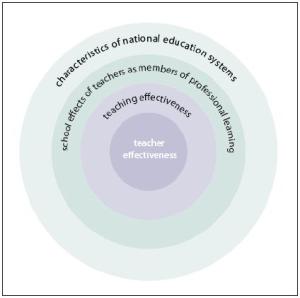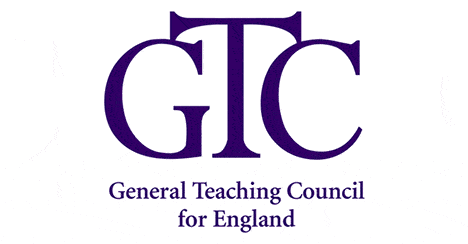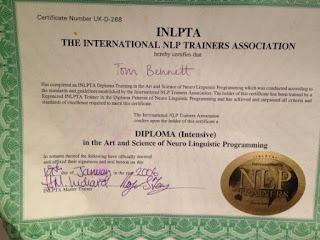This blog was originally published on the Enrich_Ed blog
The concept of a Royal College of Teaching has been mooted for some time and could, arguably, have been said to exist in the shape of the now defunct General Teaching Council. There is, however, a new momentum building in the education sector within schools, Parliament[1], and think-tanks such as the Prince’s Teaching Institute[2] and The New Visions for Education Group[3] – but what is the rationale and why now?
Teacher effectiveness: at the very core
Against an increasingly globalised backdrop in which pupils will require more complex and analytical skills to both succeed in their own careers and also provide the economy with a sufficient workforce to compete in the global knowledge economy, teachers themselves must learn in ways that develop higher-order thinking and performance[4]. This, however, is at odds with the current status quo of Continuing Professional Development (CPD) in schools comprising a handful of non-teaching training days where broad spectrum and prescriptive pedagogy and policies are delivered. Given the dramatic transformations sweeping through the education landscape, especially the proliferation of academies with no statutory obligation to employ qualified teachers, surely there has never been a better time to establish a bipartisan Royal College of Teachers with the explicit mandate of facilitating teachers themselves to coordinate professional learning, beyond the artificial horizons of a particular school or college, free from undue political interference?
Since the 1960’s there have, broadly, been four phases of reform to the education system[5]:
- Uninformed professionalism – the period prior to the 1980s, often regarded as the golden age of teacher autonomy but when teachers lacked appropriate knowledge, skills and attitudes for a modern society
- Uninformed prescription – the period following the election of Margaret Thatcher’s Conservative government in 1979 and, in particular, its imposition of a National Curriculum in 1988 for political rather than educational reasons
- Informed prescription – the period following the election of Tony Blair’s New Labour government in 1997, bringing with it ‘evidence-based’ policies such as the Literacy and Numeracy Strategies and Standards-based teacher training
- Informed professionalism – a new phase, just beginning, when teachers will have appropriate knowledge, skills and attitudes so that the government can grant them a greater degree of licensed autonomy to manage their own affairs.
It is this new phase in which the teaching profession currently finds itself and although, in theory, the ‘greater degree of licensed autonomy’ is an exciting prospect, it is something which, hitherto, has not been recognised within the arena of CPD. The diagram above is indicative of the considerable academic research which emphasises that it is the quality of teachers which has thebiggest impact on raising student outcomes[6]. Paradoxically, given the paramount importance attached to the impact of teacher quality and the need to develop higher level teaching skills to remain globally competitive, there remains a vacuum in CPD[7]. This CPD vacuum flies in the face of research which reveals it is precisely such teacher driven development strategies, supported by the government, that establish the conditions for young pupils to achieve.
Social media and more sophisticated communications networks are now, however, empowering teachers to take professional learning into their own hands. A pioneering minority have taken to twitter to share ideas and links to research and examples of good practise. Such exchanges have led to the creation of informal TeachMeets where teachers and other education professionals meet up to present their research and ideas free of charge. Similarly, Massively Open Online Courses enable teachers to access rigorous academic research, learn more about critical reflection, and watch lectures from world experts in their field, for instance consider the ‘How to Learn Math’ course provided by Stanford University for maths teachers and designed by leading Professor of Mathematics Education Jo Boaler, again at no cost[8]. Whilst digitally tailoring professional learning in this way certainly breaks free from the prescriptive In-School Training days, it would seem appropriate to have some mechanism through which teachers can collate and demonstrate the various components of their specific professional learning. This would not only be of tremendous value to themselves, but also future employers and the teaching profession as a whole which would be able to benefit from sharing best practise more effectively.
A powerful professional organisation can be considered as one of the key features required for an occupation to be termed a profession[9], so perhaps the absence of such a body, thus far, has lead to the ambiguous position of teaching vis-à-vis more established professions such as law or medicine[7]. Suffice it to say, such a body would be uniquely equipped to act as a mechanism through which individual teachers can chart their professional learning, and through which the profession can foster the development of and share the findings of evidence based practise. Indeed, it is in the arena of evidenced based practise that teachers can take a lead from their medical counterparts and, in particular, the work of Dr Goldacre[10] who advocates that:
- research on what works best should be a routine part of life in education
- teachers should be empowered to participate in research
- myths about randomised trials in education should be addressed, removing barriers to research
- the results of research should be disseminated more efficiently
- resources on research should be available to teachers, enabling them to be critical and thoughtful consumers of evidence
- barriers between teachers and researchers should be removed
- teachers should be driving the research agenda, by identifying questions that need to be answered.
Goldacre goes on to emphasise that this research agenda is not about telling teachers what to do, rather empowering them with evidence-based, independent and informed decisions on, for instance, the factors that help to raise teacher effectiveness. He extols the huge gains made by the medical profession, having become a truly evidenced-based profession, and argues that teachers have the same opportunity to leap forward. A prospective professional body, analogous to the British Medical Association (BMA), could therefore act as a vehicle through which to coordinate, encourage and promote rigorous research and share the findings in order to help raise levels across the board.
Whilst there is a compelling rationale for a Royal College of Teaching, what would it actually look like and, as a teacher what would I see? One such suggestion is put forward by Ross Morrison McGill[11] who advocates teachers combining professional learning in a portfolio that could contain the following:
- a video of a lesson observation.
- a record of performance management targets.
- classroom data.
- CPD records over the past 5 years.
- personal information e.g. address, next of kin etc.
- access to references over time i.e. for each job application.
- an honest ‘about me’ section that could contain a voxpop, a blog or twitter account that could demonstrate personality, as well as my teaching ability.
- a collection of all social-media sources
Allied to the results of research, best practice, resources and any formal professional exams that may be introduced by a professional body to achieve a ‘Chartered Teaching Status’, this would provide a useful chronicle of professional learning for both the individual and future employers and through which the professional body would be able to draw upon to help raise the bar across the board.
A professional learning portfolio is in stark contrast with traditional prescriptive and disjointed CPD perspectives. Within the literature, professional learning is now conceptualised as dynamic, on-going, continuous, and set in teachers’ daily lives – embedded in the classroom context and constructed through experience and practice, in sustained, iterative cycles of goal setting, planning, practicing, and reflecting[4]. There are a wide array of activities that could be considered to be embraced by such a collaborative and job-embedded model of professional learning including: analysis of a school’s culture; peer observations of practice; small-scale classroom studies about students’ work; analysis of student data; lesson study groups; involvement in a development or improvement process; and case studies about patterns in students’ classroom behaviour. The roll of the Royal College then would be to promote such an individualised and collaborative approach and coordinate and disseminate key findings and best practise across the profession. In so doing, it could also help to raise the profile of the the profession vis-a-vis other occupations and encourage more graduates and career changers to consider teaching.
A collaborative culture in the broadest sense, not just within the teaching profession but also in association with all those involved in education, in conjunction with the introduction of an effective professional body could see the start of a new wave of ‘democratic professionalism’ in which teachers digitally tailor their professional learning and use evidenced-based research and widely disseminated best-practise to analyse and inform their teaching and help raise standards across the board[12]:
“There is an outstanding momentum of consensus from an incredibly broad range of interests who all agree that the time has now come for the teaching profession to look to form its own professional body”.
Charlotte Leslie MP, Education Select Committee [1]
[1] Charlotte Leslie MP, member of the Education Select Committee, interviewed by SecEd http://www.sec-ed.co.uk/news/the-royal-college-of-teaching-draws-closer
[2] The Prince’s Teaching Institute College of Teaching Consultationhttp://www.princes-ti.org.uk/CollegeofTeaching/
[3] The New Visions for Education Grouphttp://www.newvisionsforeducation.org.uk/
[4] Literature review Quality in Teachers’ Continuing professional development, European Commission http://ec.europa.eu/education/school-education/doc/quality_en.pdf
[5] Barber, M. (2005) Informed Professionalism: Realising the Potential. Presentation conference of the Association of Teachers and Lecturers, London, June 11
[6] Teachers Matter: Attracting, developing and retraining effective teachers. OECD http://www.oecd.org/edu/school/34990905.pdf
[7] It’s time to give teachers the skills the skills and respect they deserve. Tim Brighouse & Bob Moon http://www.oecd.org/edu/school/34990905.pdf
[8] EDUC115N: How to Learn Mathhttps://class.stanford.edu/courses/Education/EDUC115N/How_to_Learn_Math/about
[9] Millerson, G. (1964) The Qualifying Association. London: Routledge & Kegan Paul
[10] Teachers! What would evidence based practise look likehttp://www.badscience.net/2013/03/heres-my-paper-on-evidence-and-teaching-for-the-education-minister/
[11] Job Applications: what I’d really like to sayhttp://teachertoolkit.me/2013/02/09/job-applications/
[12] Whitty, G. (2006) Teacher Professionalism in a new erahttp://www.gtcni.org.uk/publications/uploads/document/annual%20lecture%20paper.pdf










 “…work with the government, to promote teachers’ professional development…”
“…work with the government, to promote teachers’ professional development…”
 Discussion: “…the last thing we need at this, or indeed any stage, is fragmentation and the formation of splinter groups…”
Discussion: “…the last thing we need at this, or indeed any stage, is fragmentation and the formation of splinter groups…”






